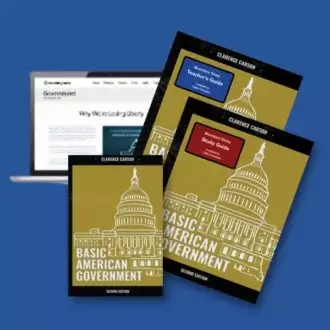On a recent trip to China I had the opportunity to give a lecture to a large class of freshmen and sophomore management students. There were around 225 students in attendance. As is my habit in such situations, I gave a lecture establishing the nature of private exchange and the mutual benefits of free trade. I then turned to a discussion of private property, a prerequisite of free enterprise, and made a natural law case for its protection.
In discussing the nature of private property, I turned to American history. I used two power point slides to do this. One was a brief excerpt of the Declaration of Independence where Jefferson appealed to the Lockean rights to life, liberty, and property as being self-evident. The second slide quoted the eighth commandment prohibiting theft. I used these two slides to discuss the fact that while the American Founders differed in their religious views, they were nevertheless committed to a shared natural law understanding of the world. As such, they all agreed that a just legal foundation provided for the protection of private property and, hence, for a free market economy.
While I had given this lecture before, this time something unusual happened. When I got to these two slides it created quite a bit of commotion among the students. It seemed that they were surprised that I would quote the Bible as well as the Declaration of Independence. But, why were they shocked? After all, these are the facts of American history. Perhaps the students’ response was owed to the fact that the Chinese form of political economy does not recognize the natural rights of the individual. Therefore, to suggest that there are such rights so openly struck them as very odd. If this were the case, their response might well be based on a fear of their own government as they wonder whether or not they should even be listening to such a lecture.
This is just speculation on my part, but it did get me to thinking about the typical response I get from American students when I present the same thing. In the U.S. students will typically accept the notion of the natural rights of individuals as a given. They are all familiar with the words of the Declaration of Independence and just assume that this is the foundation of our own political economy. However, today our government is not committed to the protection of individual rights any more than the Chinese government is. Thus, American students just assume something that is really just not true anymore. In fact, when we get beyond the surface to explore the implications of natural rights, it becomes obvious that our government trampled our rights over the past hundred years or so. Once we begin this discussion it also becomes clear that a fair number of my American students will end up arguing for more government control and less liberty. But it was this liberty and free enterprise that allowed America to flourish in the first place.
This makes for an interesting comparison. On the one hand, the Chinese economy has been moving away from its heavy handed socialism toward a command economy similar to the mercantilism of the nation states prior to the advocacy of free trade. On the other, the American economy is heading further away from its roots. To be sure, the Chinese economy is not free, but if the trend continues it may well become freer than our own sometime in the not too distant future as Americans take freedom for granted.







0 Comments